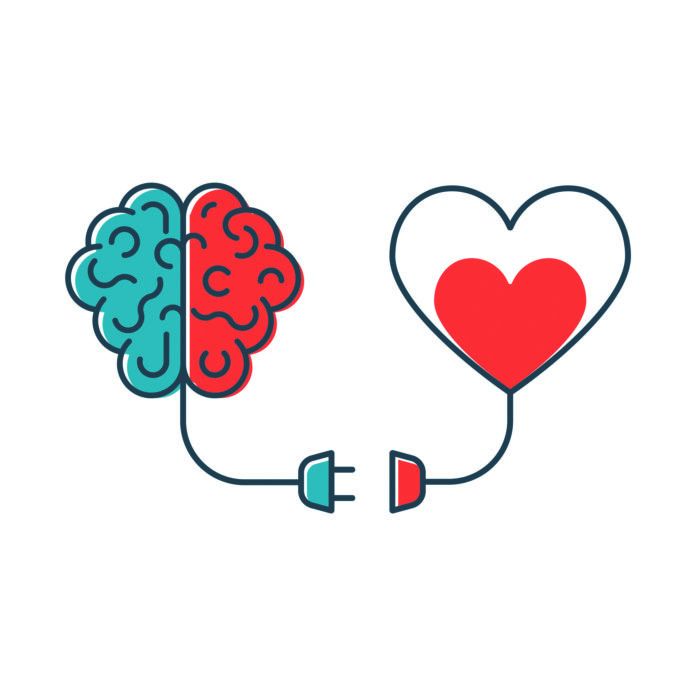While life-altering cognitive decline is not always a part of aging, one in three people is likely to have some form of dementia by age 85. There is currently no cure for Alzheimer’s diseases or any other form of dementia, and the few existing treatments can only slow the onset and progression of these conditions. Prevention is our best weapon, and lifestyle choices play a major role in keeping our brains healthy.
Risk Factors. The greatest risk factor for dementia of any kind is age. While Alzheimer’s disease and other dementias do run in families, genes are only a small part of risk. Hearing loss and history of head injury are also known risk factors for cognitive impairment. After age, however, cardiovascular health is the most important indicator of dementia risk.
The Heart-Brain Connection. “We need to recognize that a very substantial amount of the problem of age-related cognitive decline and dementia resides in the cardiovascular system,” says Irwin Rosenberg, MD, professor emeritus at the Friedman School. If atherosclerosis narrows the arteries leading to the brain, flow of nutrients and oxygen can be reduced and blood pressure can rise, causing damage to large or small vessels in the brain. This can result in impaired cognitive function. Heart disease, diabetes, stroke, high blood pressure, and high cholesterol are all associated with greater risk for dementia. Even Alzheimer’s dementia, which is defined by the buildup of plaques and tangles of specific proteins in the brain, has a known vascular component. Studies of donated brain tissue suggest plaques and tangles are more likely to cause Alzheimer’s symptoms if strokes or damage to the brain’s blood vessels are also present. “Based on our research and a long history of earlier studies, my colleagues and I believe that cerebrovascular disease, especially involving small vessels in the brain, may be the most important factor leading to age-related cognitive decline,” says Rosenberg.
Rosenberg and his colleagues at Tufts have done considerable research on the amino acid homocysteine. “Several population studies have found an association between homocysteine levels in the blood and cognitive impairment,” says Rosenberg, “and our research has found a relationship between homocysteine and small vessel disease in the brain.” We do not yet have adequate studies to demonstrate homocysteine is the cause of small vessel disease or dementia, and stronger studies are needed to determine if lowering homocysteine levels has an impact on cognition.
What to Do. “I tell my patients to protect their cognitive health by taking the same steps one would take to prevent heart attack and stroke,” says Richard Dupee, MD, chief of Geriatrics Service at Tufts University School of Medicine. “That means, for example, consuming a healthy dietary pattern, being physically active, and controlling blood pressure, lipids, and diabetes.” While these measures will not reverse Alzheimer’s disease nor significantly reverse vascular dementia, if started early enough they may slow onset and progression.
While results from human trials have been mixed, a two-year randomized controlled trial conducted in Finland found that at-risk older adults receiving vascular risk monitoring and interventions around diet, exercise, and cognitive training were less likely to have changes in cognition than a control group receiving general health advice.
“It is time we give greater attention to the cerebrovascular component of cognitive health,” says Rosenberg. While pharmaceutical companies focus on creating drugs that remove plaques or tangles from the brain, we can focus on keeping the blood vessels in our brains healthy. See the Take Charge! box for the tips you need to keep your brain as healthy as possible, for as long as possible.
- Take Care of Your Heart. Work with your healthcare provider to control blood pressure, blood sugar, and serum cholesterol and triglyceride levels.
- Get Moving. Engage in moderate physical activity for at least 30 minutes a day, five days a week.
- Eat Right. Consume a healthy dietary pattern, such as a Mediterranean-style diet, reduced sodium DASH diet, or the AHA heart healthy diet described on page 2.
- Butt Out. Avoid exposure to tobacco products.
- Watch your Head. Reduce risk of head injuries by wearing appropriate safety helmets and practicing fall prevention.
- Keep the Mind Active. Engage in novel cognitive activities, like continuing formal education, learning a new language or instrument, or doing challenging puzzles.
- Rest and Relax. Get good quality sleep (treat sleep apnea if present), and manage stress, anxiety, and depression.
- Prioritize Friends. Stay socially active.
- Listen Up. Seek help to improve your hearing if you suspect you don’t hear well.
























